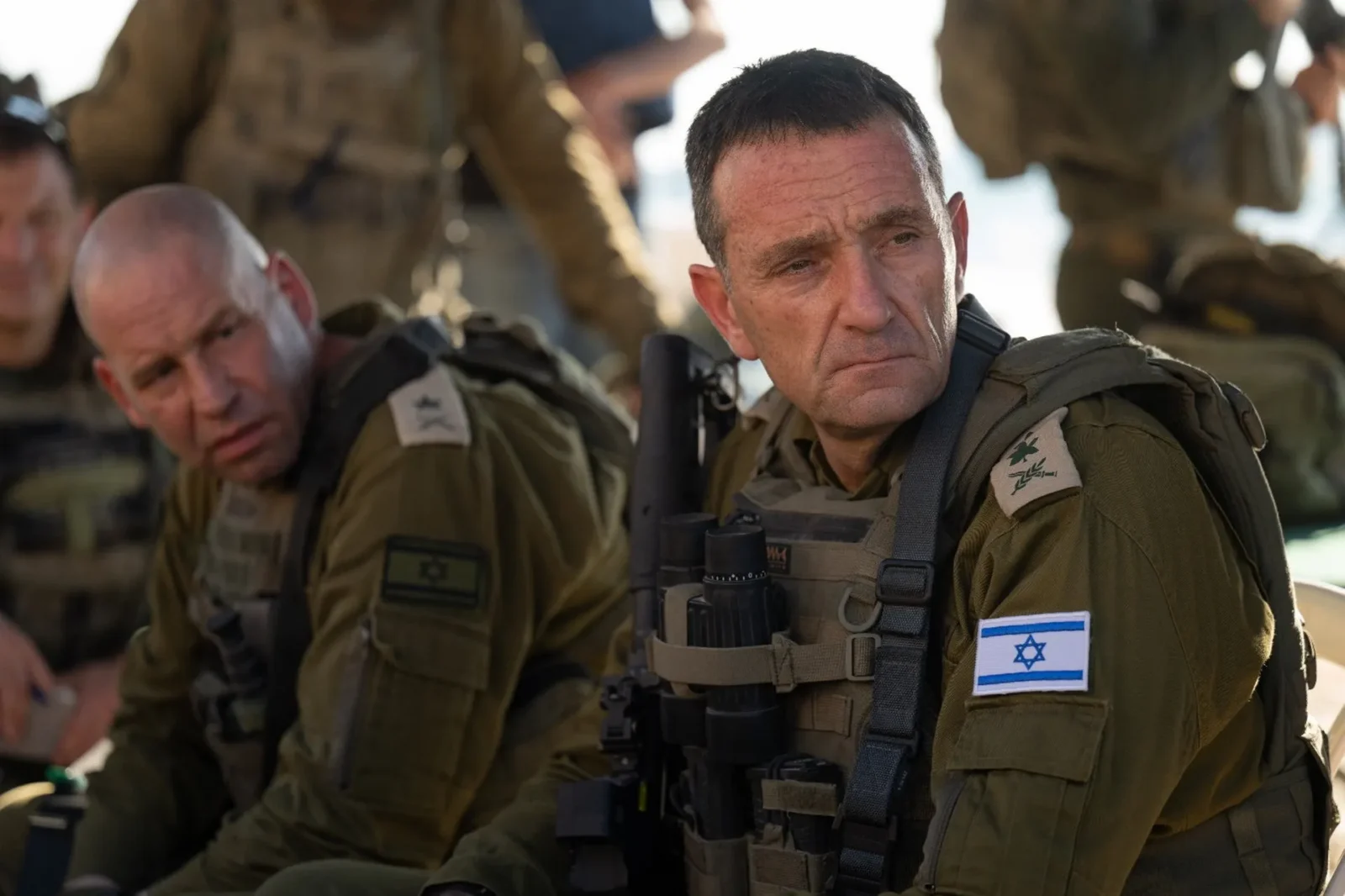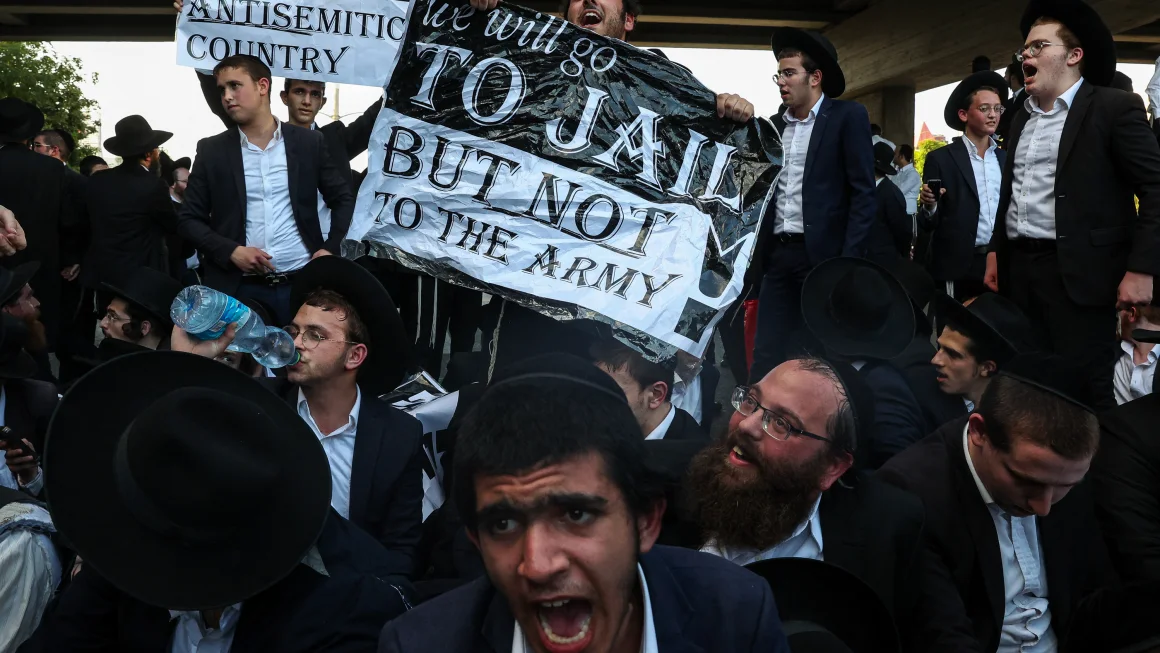
Israel’s political and military landscape has undergone a significant shift in the last decades, and the recent appointment of Maj. Gen. Eyal Zamir as the next chief of staff of the Israeli army is just adding it up to this transformation.
On Saturday, Prime Minister Benjamin Netanyahu and Defense Minister Israel Katz confirmed the decision, marking a change in leadership that has the potential to shape the direction of the Israel Defense Forces (IDF) in the coming years.
Zamir, a seasoned military strategist, was previously a frontrunner for the position in 2022 but was ultimately passed over in favor of Lt. Gen. Herzi Halevi. His selection this time around implies a political and ideological shift within Israel’s defense establishment.
Unlike Halevi, who was appointed by former Defense Minister Benny Gantz and represented a different school of approach, Zamir’s close ties to Netanyahu suggest a realignment that could reshape IDF policies and strategies in line with Israel’s increasingly hawkish and extremist government.
In Israel, while respect for hierarchical relationships remains largely intact institutionally, there are significant concerns regarding institutional functioning, as highlighted by numerous analysts in recent years. Even in Netanyahu's early tenure, reports prepared by professionals and experts within state institutions, once followed diligently, can now be easily disregarded. An institutional framework free from ideological influence was a key factor in maintaining this professionalism. However, the rise of ideological capture under the 'anti-establishment' government has eroded this foundation.
Zamir’s rise to the top military post is not just a routine leadership transition but a broader transformation in the IDF’s political orientation. His appointment reflects Netanyahu’s efforts to consolidate control over Israel’s security apparatus by placing loyalists in key positions. This move aligns with the broader trend of increasing ideological cohesion between the military leadership and the government, reinforcing a vision that prioritizes hardline defense strategies and national security imperatives.
Beyond domestic politics, this shift has implications for Israel’s international standing. With the International Criminal Court (ICC) closely monitoring Israeli military actions, the government may see Zamir as the right figure to balance strong military operations with a disciplined, rules-based approach that helps shield Israel from external legal challenges.

On the strategic front, Zamir’s leadership is expected to emphasize military self-reliance. Throughout the ongoing conflict, he has played a central role in securing additional munitions and expanding Israel’s air defense capabilities. His advocacy for the “Blue and White” initiative, which prioritizes domestic production of military equipment, signals a move toward reducing dependence on foreign suppliers and bolstering Israel’s indigenous defense industry through more technology transfer.
This approach aligns with Netanyahu’s broader vision of an IDF that is less reliant on international support and more capable of sustaining long-term military operations independently. Investing in local defense manufacturing also serves as a hedge against potential shifts in U.S. or European military aid policies, ensuring that Israel maintains its qualitative military edge regardless of geopolitical fluctuations.
Beyond strategy and politics, what drives the change in the army is deeper sociological changes within the IDF, and Zamir’s appointment is reflective of it on the high-ranking levels. Over the past few decades, the composition of the military’s leadership and rank-and-file soldiers has evolved significantly.
Historically, the IDF’s officer corps was dominated by secular, center-left figures, many of whom were affiliated with the Labor Party or its political line. However, there has been a steady rise in the influence of nationalist religious and ultra-Orthodox elements within combat units. In 1990, only 2.5% of infantry officer cadets came from nationalist religious backgrounds; by 2015, that number had surged to nearly 40%, far exceeding their proportion in Israeli society, according to Yehuda Shaul, co-director of OFEK, the Israeli Center for Public Affairs.
This demographic shift has sparked an internal power struggle within the IDF. On one side, there are the traditionalist, institutionally trained commanders who uphold the long-standing chain of command and secular military doctrine. On the other hand, there is a growing cohort of nationalist-religious officers and rank-and-file soldiers who view military service through a more ideological lens. This ideological divide has fueled debates over whether ultimate authority in the IDF should rest with commanders or religious leaders.

Zamir’s appointment also comes at a time when Israel faces mounting international scrutiny. The looming presence of the ICC and increasing pressure from human rights organizations have forced the IDF to adopt a more structured legal approach to military operations.
Some within the government argue that a strong Military Advocate General’s office is necessary to demonstrate Israel’s commitment to the rule of law and protect soldiers from potential legal repercussions abroad. His diplomatic experience, including close ties to Washington, may help Israel sweep it under the rug.
A perceived commitment to “lawful” military operations could bolster Israel’s image abroad, though critics question whether institutional reforms will address deeper accusations of systemic violations.
While his technical expertise and political rapport with Netanyahu may streamline decision-making, the military’s ideological fractures remain unresolved. The rise of nationalist-religious officers could deepen divisions, particularly if operational commands clash with rabbinical influence.
For now, Zamir represents a bridge between Israel’s security traditions and its shifting political landscape. His success will depend on managing these contradictions while maintaining military readiness—a task complicated by external threats and internal polarization.